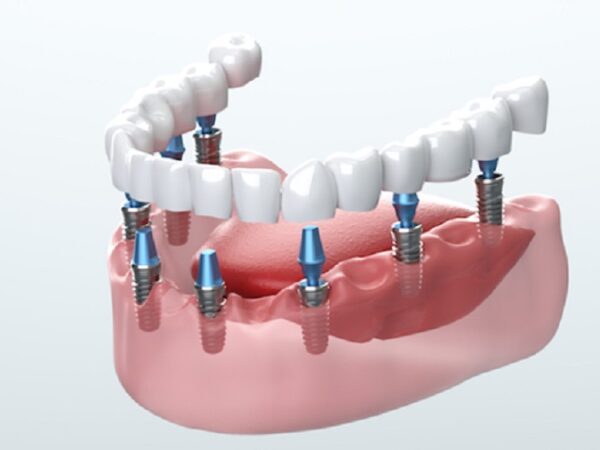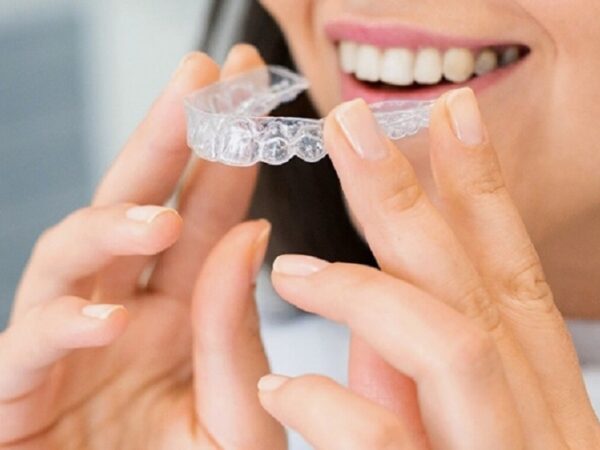Do you find it difficult and painful to eat? Do you feel embarrassed to speak to friends or family? Are missing teeth preventing you from living your life to the fullest? If so, then dental implants Clapham may be the perfect, permanent solution to all of your problems! Wave goodbye to unsightly gaps caused by tooth loss as dental implants can restore the beautiful look of your teeth and fix your bite.
What are dental implants?
Tooth loss can be an extremely distressing experience for you, and you may desperately be searching for a permanent solution as soon as possible to conceal the big gaps they can leave between your teeth. Fortunately, you can put your mind at ease knowing that dental implants are a permanent alternative to removable dentures and can replace just a single tooth or all of them if needs be. The process of having dental implants fitted is much simpler than undergoing dental surgery and involves drilling in medical-grade titanium screws into your jawbone in order to support a crown, bridge or denture that is placed on top of it. Once the titanium screw is fitted in, you can expect the bone surrounding the implant to slowly begin fusing to it, holding the implant securely in place. A more in-depth explanation of the process can be found below:
- The process of getting dental implants begins with your dentist first carrying out a clinical assessment of your teeth to determine whether your teeth are in a suitable enough condition to have dental implants fitted in or not; the assessment consists of carrying out multiple x-rays of your mouth and creating a three dimensional model of your existing teeth. In severe cases of tooth loss, you may suffer with loss of jawbone do to a lack of stimulation as a result of the absence of a tooth above it. If you have experienced significant bone loss, your dentist may wish to carry out further scans to show them how much bone you have and if you require a bone graft prior to the implant being fitted in. Additionally, your dentist will need to check the overall condition of your remaining teeth and gums to ensure that they are in a fit enough condition to undergo a procedure, as poor oral health may cause the healing process to be delayed.
- Once this is complete, your dentist can proceed with the procedure; this is carried out under a local anaesthetic, making it painless but still slightly uncomfortable. It is important to note that if you feel anxious regarding the treatment, there are several sedative options available to put your mind at ease, so please speak to your dentist during your consultation if you would like to explore your options.
- Once your mouth becomes numb, the dentist will make an incision in the gum and then drill a small hole into the jawbone to insert the implant into. Your gum will then be sealed shut with stitches if needed, however some people don’t require stitches as the incision heals quickly by itself.
- In most cases, your bone and gums will require some time to heal before anything prosthetic can be attached on to the implant. However, if you would prefer not wait to fill the missing gaps in your teeth, you can sometimes opt to have temporary teeth inserted until your mouth is ready for the permanent denture to be fitted.
- It may take on average four to eight months for your new implant to fuse with your jawbone completely. During this time, it is essential to follow the advice and aftercare your dentist provides you, to ensure your implants are looked after properly. You will also be offered follow-up appointments to confirm your implant has bonded correctly and that the treatment is working.
What are the benefits of having dental implants?
The benefits of having dental implants fitted are endless which is why they have become increasingly popular in recent years. The most significant benefit is that they provide you with a much better quality of life; dental implants make simple tasks such as eating and chewing less painful, meaning you can go back to eating your favourite foods and snacks without worrying about the pain. Additionally, they can provide you with a more natural looking and functioning set of teeth as the implants are securely fitted into your jawbone as opposed to traditional dentures and crowns which simply sit on top of your gums.




